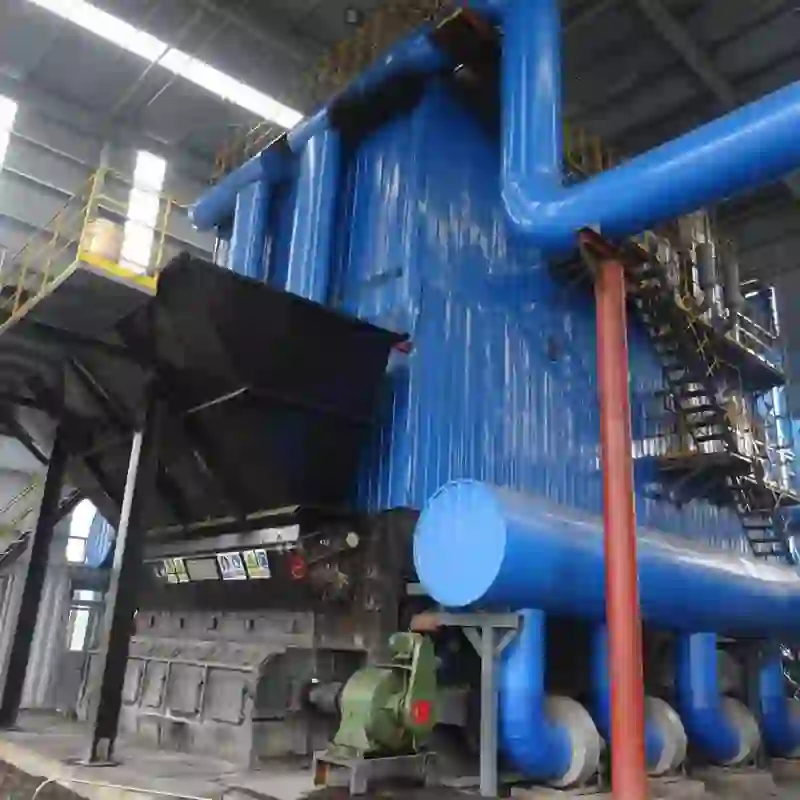
दिसम्बर . 12, 2024 17:31 Back to list
how does a biomass boiler work
How Does a Biomass Boiler Work?
Biomass boilers have emerged as a sustainable alternative to traditional fossil fuel heating systems, harnessing the energy stored in organic materials to produce heat and hot water for residential and commercial applications. Understanding how a biomass boiler works involves a closer look at the combustion process, the types of biomass fuels used, and the various components of the system.
The Basics of Biomass Energy
Biomass refers to organic materials derived from plants and animals, which can be used as a source of energy. Common biomass fuels include wood pellets, wood chips, agricultural residues, and even some types of waste. These materials are renewable resources, making biomass energy a more sustainable option compared to fossil fuels.
How Biomass Boilers Operate
The operation of a biomass boiler can be broken down into several key steps
1. Fuel Preparation The first step involves the preparation of the biomass fuel. Most boilers use wood pellets, manufactured from compressed sawdust and wood shavings. These pellets are uniform in size, dry, and have a high energy density, making them ideal for efficient combustion.
2. Fuel Feeding Once the biomass fuel is prepared, it is fed into the boiler's combustion chamber. This can be done manually or automatically, depending on the design of the boiler. Automatic feed systems are popular in larger installations, as they allow for continuous operation without the need for frequent refueling.
3. Combustion Process Inside the combustion chamber, the biomass fuel is ignited, producing heat. Unlike traditional boilers that burn fossil fuels, biomass boilers utilize a controlled combustion process that allows them to operate at optimal efficiency. Air is mixed with the fuel to support combustion, and a fan is often employed to ensure the right amount of air reaches the fuel.
how does a biomass boiler work

4. Heat Transfer The heat generated during combustion is transferred to water circulating within the boiler's heat exchanger. This process raises the temperature of the water, which is then delivered to radiators, underfloor heating systems, or storage tanks, providing warmth to buildings or hot water for domestic use.
5. Flue Gas Management The combustion of biomass produces flue gases, which carry unburned particles and gases, including carbon dioxide and water vapor. Modern biomass boilers are equipped with advanced filtration systems to minimize emissions and ensure compliance with environmental standards. Ash produced during combustion is also collected for disposal or can be used as a fertilizer.
Efficiency and Environmental Benefits
Biomass boilers are typically more efficient than traditional heating systems because they can achieve high combustion temperatures that maximize energy output while minimizing waste. Moreover, since biomass is considered carbon-neutral, using biomass for heating can significantly reduce greenhouse gas emissions compared to conventional fossil fuels.
Applications of Biomass Boilers
Biomass boilers are versatile and can be used in a variety of settings. They are popular in residential homes, commercial buildings, and industrial applications. Additionally, they can work in conjunction with existing heating systems, serving as a supplementary energy source or replacing conventional boilers altogether.
Conclusion
Biomass boilers represent a forward-thinking approach to heating by utilizing renewable energy sources to meet modern energy demands. Their operation involves careful fuel preparation, controlled combustion, and efficient heat transfer, contributing to both energy savings and reduced environmental impact. As more individuals and businesses seek sustainable alternatives to fossil fuels, biomass boilers are becoming an increasingly viable option for those aiming to achieve energy efficiency and a lower carbon footprint. By embracing this technology, we can take a significant step toward a cleaner and more sustainable future.
-
Efficient Biomass Fired Hot Water Boiler | AI Heating Solution
NewsAug.01,2025
-
High-Efficiency Gas Thermal Oil Boilers | HPT Models
NewsJul.31,2025
-
Oil Fired Hot Water Boilers Sale - High Efficiency & Affordable
NewsJul.31,2025
-
High-Efficiency Commercial Oil Fired Steam Boiler for Industry
NewsJul.30,2025
-
High-Efficiency Biomass Fired Thermal Oil Boiler Solutions
NewsJul.30,2025
-
High Efficiency Gas Fired Thermal Oil Boiler for Industrial Heating
NewsJul.29,2025
Related PRODUCTS






















